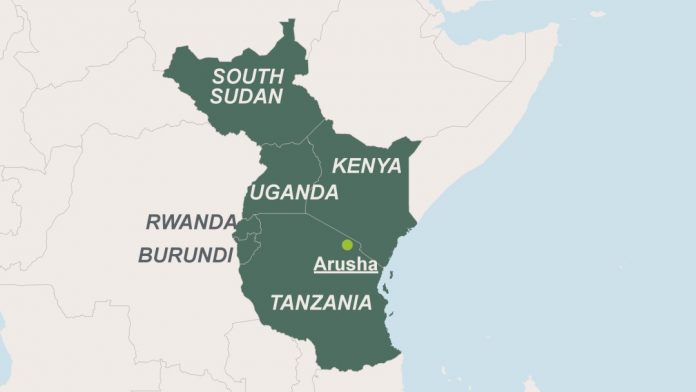In the past decade, Real estate in East Africa has boomed. Foreign developers and contractors have been targetting this region for sometimes now. Additionally, the increase in tourist visits in each country has been a great stepping stone for the housing industry.
Although the developers and contractors aim has been on commercial properties we cannot ignore the luxury living sector. East Africans have gained a flair for expensive homes. Therefore, luxury apartments have been the current focus for some developers.
Unfortunately, this has caused a shift in affordable housing. The contractors and developers build with the middle class in mind but the price range isn’t close to the target audience. Surprisingly even with the lack of residents in the apartments. More and more contractors or developers continue to build these apartments/homes.
In Tanzania
The Tanzanian real estate industry has seen a huge shift to more tourists or foreigners increase annually. Some analysists have claimed the growth of their music industry is the root of the growth.
The developments within the Tanzanian construction sector have benefited its real estate sector through the creation of additional real estate space.
The developments within the Tanzanian construction sector have positively influenced and benefited Tanzania’s real estate and housing sector through the creation of additional real estate space. The current real estate development projects that are underway, as well as those that are being developed, have created various opportunities for interested local and foreign investors.
The Tanzanian housing sector’s fast-growing demand is mainly driven by the fast-growing Tanzanian population which is estimated to be 53.47 million and that is expected to more than double by 2050.
In Uganda
World over, the real estate business is growing fast, and Uganda is no exception. More property agents and companies are springing up every other day in response to the growing demand at hand.
Professionals like quantity surveyors, architects, civil engineers and valuation surveyors no wonder have gained popularity nowadays due to this growth in the housing sector. This is equally reflected by the rise in a number of house brokers and mortgage facilities offered by banks.
This housing boom was unheard of more than three decades ago. At the time, civil servants seemed more content with residing in government pool houses or staff quarters. You wouldn’t blame them, considering the fact that these residential areas had easy access plus the basic utilities one would think of.
With the liberalisation of the economy also came government efforts to divest its interests in these pool houses. Sitting tenants were given priority to acquirement ownership of these houses and some who couldn’t afford or had no interest in acquiring the property passed them on thereby getting a cut as goodwill.
Rising occupancy rates in first-grade office buildings, residential areas in Kampala City and the growth of property inquiries captured investor s and developers. Uganda has seen a huge growth in Real Estate compared to its neighbours. Since the government pulled out of providing housing to civil servants, there was increased demand, which the real estate industry has tried to address.
In Rwanda
After the unfortunate genocide, the rwandanese economy was gravely affected, however, President Kagame pulled his reins and uplifted the country to the greatness it is now. Moreover, with the recent changes in the country has to lead to attraction to major investors who have come with great influence on their real estate.
The real estate industry in Rwanda is constantly evolving. A mere three years ago there were few apartments and townhouses throughout the city. Now, there is a large number of these kinds of housing. The country is slowly becoming an example for East Africa.
Those in the real estate industry trying to market apartments and townhouses will readily tell you that these housing options are not attracting the local Rwandan buyer.
However, Rwandans and other Africans in the Diaspora, along with many foreigners, are using the opportunity to own a piece of the new Rwanda. With the rate of population growth expected in Rwanda over the next few years, there will be no choice but for housing options to be ground plus one or two or maybe even more.
In Burundi
Not much can be said about real estate in this quiet country, however, it’s not doing too bad. With the advantage of being bordering with two major investor pools(Rwanda and Tanzania), this has to lead the pool to pour into Burundi.
Burundi’s real estate sector is still in its infancy stage following civil war disruptions that left the country in a mess, following the prevailing political stability in the country the real estate sector has started developing in urban areas of Burundi more especially in Bujumbura.
In Southern Sudan
South Sudan’s real estate sector is one of the growing sectors in the economy considering the fact that the country is a young nation that gained independence on 9 July 2011. There are few office premises, apartments and residential houses constructed especially in Juba.
The government has recently established a housing development corporation to handle housing matters in the country. There is increased demand for housing units especially in urban areas hence creating an opportunity for investment.
We can only hope the young East Africa nation will blossom in the years to come.
In Kenya
Real estate in Kenya has had a tumble. With buyer’s market-changing daily, developers and contractors are in a race to meet demands. However, during the past years due to terrorist threats, the industry had shifted moreover the political tension had put the industry was on standstill which was resolved by the famous ‘handshake’.
The East Africa countries are thriving despite tensions. The real estate industry is still expected to grow in the coming decades. Moreover, we can expect the countries will merge their resources by continuing to engage in trade. We can hope for good things.














